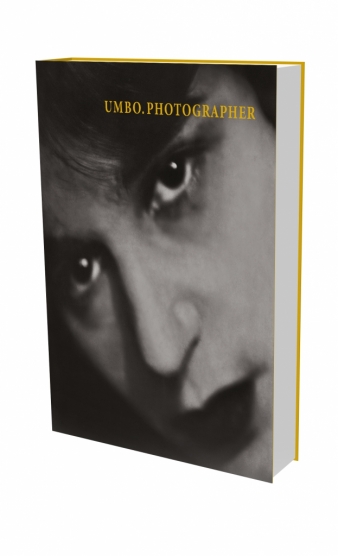* Preise inkl. MwSt., zzgl. Versandkosten
Gratisversand nach Deutschland.
UMBO. PHOTOGRAPHER
Cat. Sprengel Museum Hanover
Cat. Sprengel Museum Hannover in cooperation with the Berlinische Galerie and with friendly support of the Stiftung Bauhaus Dessau; benefited by the Kulturstiftung des Bundes and the State of Lower Saxony, ed. by Inka Schube
texts (English) by Inka Kristina Blaschke-Walther, Ute El Nahawi and Maria Bortfeldt, Michael Glasmeier, Stella Jaeger, Anthea Kennedy and Ian Wiblin, Angela Lammert, Annelie Lütgens, Sabrina Mandanici, Patrick Rössler, Bernd Stiegler, Christoph Wagner, Georg Wiesing-Brandes, Inka Schube et al.
336 p with 320 illustrations in Duotone
280 x 230 mm, cloth with dustjacket
ISBN 978-3-86442-288-1
German edition:
ISBN 978-3-86442-280-5
UMBO – the »big bang« in modern photography
UMBO – at the latest since Herbert Molderings’ 1995 retrospective of the artist, this name stands for a kind of »big bang« in modern photography in the mid-1920s: UMBO, born in 1902 in Düsseldorf as Otto Maximilian Umbehr, the second of ten chil-dren of a civil engineer and a teacher, is considered the inventor of the image of the New Woman, the new image of the street, and photographic reportage per se. His name stands for the departure of the German Youth Movement of the Wandervogel from the Wilhelminian era to the early Bauhaus.He also represents the media metropolis Berlin in the 1920s, spurred above all by immigrants from Eastern Europe, for a rapidly developing film, music, theater and cabaret scene, for glimpses into the backyards and kitchens of overflowing tenement houses. UMBO: This is the young artist plagued by self-doubt who becomes famous as a photographer almost overnight thanks to the impulses received by his Bauhaus teacher Johannes Itten and his artist friend Paul Citroen and hence participates in all important avant-garde exhibitions of his time; and who, according to the narrative, lives through National Socialism as an »anti« whose Berlin studio and archive is completely destroyed by bombs in 1943, and whose attempt to revive his former existence as a photographer of the avant-garde fails during the economic miracle of the West German post-war period in Hanover; whose expressive early, then new work is rediscovered in the 1970s; and who, in 1979, shortly before his death, has his first solo exhibition in a museum context in the Spectrum photo gallery at the »Kunstmuseum Hannover and Sprengel Collection«. The publication, which presents a selection of 200 works and numerous documents, is essentially based on UMBO’s estate. Protected and moved for decades by Phyllis Umbehr, the artist’s daughter, and gallery owner Rudolf Kicken, UMBOs estate was acquired in 2016 thanks to the commitment of numerous partners by the Bauhaus Dessau Foundation, the Berlinische Galerie and the Sprengel Museum Hannover. More than 600 photographs and extensive source material, supplemented by earlier acquisitions of the partner institutions Berlinische Galerie and Bauhaus Dessau Foundation, and, in the case of the Sprengel Museum Hannover, from the postwar archive REPORT / Simon Guttmann, London, form the background. And yet, the question of how this photographer related to the complex histories of his time can only be answered rather vaguely: Only those early pictures have been preserved that UMBO passed on as his best to friends, or presented to a few collectors. In addition, in the course of digitizing image stocks, images tend to resurface that circulated – not always under UMBO’s name – in press agencies and publishers from those years. Nevertheless, the material, supplemented by selected press releases, yields a highly complex, dazzling image, an artist biography of the 20th century full of discontinuities, fractures and unanswered questions. Not least, it revolves around the failure of the avant-garde and the difficulty of following up on their successes after the Second World War. The publication UMBO. PHOTOGRAPHER therefore offers the opportunity to re-examine the many projections associated with the name UMBO, more than two decades after the first retrospective.

